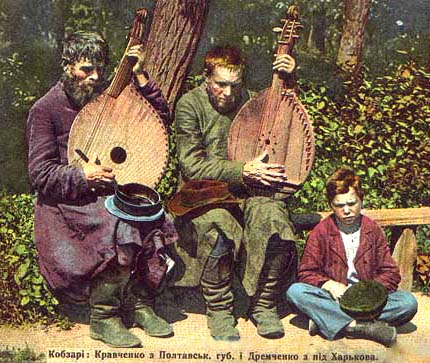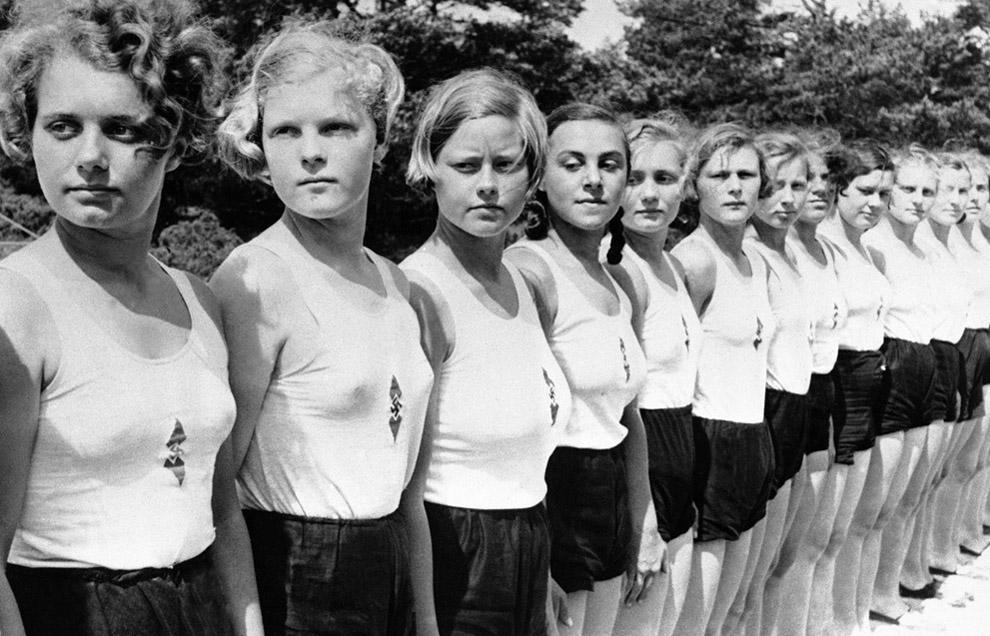The container has a number – 8809, and a date - 1946. The Soviet government purposely numbered and dated all containers as NKVD officers were fully aware that Ukrainian underground fighters used them to hide their documents and bury them in nearby forests. If milk cooperatives failed to present the right number of milk churns, then some workers would probably be suspected of cooperating with the UPA. UPA soldiers often set fire to local stables and buildings, taking the churns with them so that no one would be arrested by the NKVD.

Thanks to the sandy soil in Yanivsky forest, the can was very well preserved although the materials were slightly damp. Almost all the documents are legible and dated between 1948 and the first half of 1951, covering Lviv, Rivne, Ivano-Frankivsk Oblasts, and part of Chernivtsi Oblast. The Director of the “Prison on Lontskoho”, historian Ruslan Zabily, believes that the archives were brought in from different regions to Lviv Oblast, probably for the UPA Security Service.
The materials should be of special interest to residents of Ostrozhetsky Raion, Rivne Oblast (now Mlynivsky). Written neatly and clearly, the notebook contains a list of families that were exiled to Siberia from 1940 to 1948. The surname and first name of each member of the family, their year of birth, the property belonging to the family (land, house, cattle and animals) and reasons for their exile are meticulously described.
In another notebook there is a list of arrested persons and also detailed information about them. The names of people who voluntarily surrendered to the Soviet authorities are also recorded.
There is also a 117-page report from Kosiv Raion, Ivano-Frankivsk Oblast containing a list of OUN personnel, protocols about the Soviet Ministry of State Security pillaging of villages and towns, the organization of collective farms, and the names of Soviet “extermination” battalions.

“There are many reports. We don’t understand why there are no materials from Ternopil Oblast. However, this is an extraordinary find! Apparently, these materials were delivered to the leaders of the Ukrainian underground movement.” says Ruslan Zabily.
Museum researchers also discovered a few 1948 editions of the children’s underground illustrated magazines - Little Friends (Малі друзі). They contain poems for children, stories, puzzles, riddles and even games, but all of them have a historical theme composed specially for children, who are constantly reminded to “speak their native language”.

Several slogans are printed on the cover of the children’s magazines: “Freedom for all nations! Freedom for each man and woman! For an independent and unified Ukrainian State!” These slogans were included in the 1947-1948 editions when the magazine was published by Ukrainian refugees in Germany. Before the Second World War, the magazine was published in Lviv, and during the war years, in 1940-1944, in Krakow, Poland.

The second is what we have in our mouth. (zub-tooth)
So, can you guess the word now?
Yes, it’s our coat of arms as such.” (tryzub - trident)
Advice for parents
In the 1950s, Ukrainian underground fighters were dedicated to educating children and young people, so they issued a book - Guidelines for Parents in Educating Children - on how to advise children and teens and protect them from Soviet propaganda, media, school, and institutions.
For example, parents are advised: “to tell the children that Russians are not our older brothers, and neither are they our guardians or liberators. Russian Bolsheviks are enemies of the Ukrainian people; they are exploiters and oppressors!”; “to explain to the children that the Pioneers, Komsomol, and other Bolshevik organizations can harm our people; they want to brainwash our children, make them obedient tools in the hands of our enemies - the Bolshevik Party. Their aim is to separate us”; “to teach the children how they should act toward Bolshevism and Bolsheviks. Don’t trust the Bolsheviks, avoid them at all costs. Young adults must not become close to or marry a Bolshevik. Don’t speak Russian, don’t greet each other in Russian or Bolshevik style”; “to explain to them what damage and crimes the Bolsheviks are perpetrating against the Ukrainian nation”; “to teach them how to act in Bolshevik schools; and “to explain what Bolshevik propaganda really means”.

“Questions raised back in the 1950s are so relevant to all Ukrainians today… and even more so if we consider the war with Russia and the power and influence of Russian propaganda. What I mean to say is that these underground soldiers and partisans wanted to teach Ukrainians how to be Ukrainian. Don’t act in a way that you wouldn’t want to see your children emulating either within the family or in a group, stay together and be unanimous in condemning evil deeds – this was their advice to parents. If these materials were discovered in a private house, NKVD authorities would have swooped down and rounded up everyone in the area! After all, these publications were closely connected to the Ukrainian underground movement!” stressed Ruslan Zabily.
Important reports and documents
Among the materials there are many books and documents about Ukraine written by contemporaries - Our Attitude Toward the Russian People, The Concept of an Independent Ukraine, as well as reprints from The Revolutionary Propagandist (1949) and the satirical magazine Khrin.

Regional reports drawn up during the revolutionary underground years are also of great interest for future studies of the history of the Ukrainian liberation movement.
“There are a lot of reports and documents from different regions of Western Ukraine, except for Ternopil Oblast – for example, publications by the Ukrainian nationalist command - Propaganda and Information Centre, several copies of the underground magazine – Revolutionary Propagandist, which is especially valuable because it has lots of written comments. There are instructions for investigators of the UPA Security Service, how to organize internal documentation, what materials to collect, how to process them and fill in protocols.” explains Ruslan Zabily.

All documents submitted to the Museum Prison on Lonskoho will be digitized and restored. This will be another precious discovery left behind by OUN and UPA soldiers that will allow historians and researchers to compile thorough investigations of Ukrainian underground activities during the Soviet period. By burying thousands of archival materials almost 70 years ago, Ukrainian revolutionary fighters obviously understood that such documents would be needed for future generations in order to better understand Ukrainian history.





